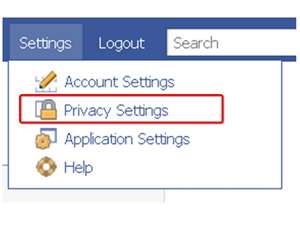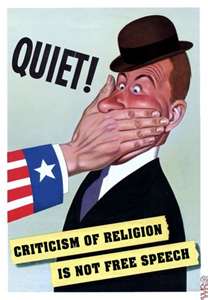
Privacy is a complex issue in the United States. The advent of new technology is changing not only the perceived definition of privacy but also its reality. In this series of blogs I’m going to take on this complex issue and examine how it relates to every citizen of this county and, more generally, to the idea of Libertarianism and free thinking.
As is my want, I’ll start out with the general definition. This is a difficult concept because there is the definition of privacy, the general expectation of privacy, and the actual fact of privacy law in the U.S. Surprisingly, these three things are fairly widely divergent.
First I want to examine simply the concept of privacy. The dictionary seems a good place to start. Sadly, I don’t have a subscription to the magnificent Oxford English Dictionary site but Merriam Webster comes to the rescue.
a. the quality or state of being apart from company or observation
b. freedom from unauthorized intrusion <one’s right to privacy>
I think we are largely talking about definition “b” in this case. Our right to privacy from unauthorized intrusion. The first definition concerns itself more with my individual right to hide in my room typing my blog, writing my latest book, and playing Skyrim.
Now, as to our perception of privacy. An interesting story recently demonstrated that, largely, our sense of what is private does not mesh with reality. I don’t want to get into the details of the story but basically it talks about how our shopping habits, tracked through our credit, debit, and reward cards gives retailers a great deal of information about us.
We think that is private for the simple reason that until the advent of massive database tracking it was impossible for someone to keep track of that much information. Those sorts of databases now exist and combined with identifying tools like reward cards and tracking cookies it is possible for people to not only keep that information but mine it for gain, both yours and theirs.
How does that help me? It helps me everyday when I’m on the computer. Advertisements that interest me show up in my browser, books that correspond to my reading habits show up every time I visit Barnes and Noble or Amazon to check on the rather anemic sales of my books. This sort of targeted advertising will only increase as the technology blooms. When I check in at the grocery story my phone will tell me items on sale that I’ve purchased in the past. When my shirts start to get to be a year or so old I’ll get an automated message from Brooks Brothers that I need some new ones.
These are the sorts of things we once thought private but are quickly finding out are not. If, say, I purchase an inordinate amount of Bookers Bourbon in a month perhaps I might get a call from an alcoholic center. It’s difficult to say how far this information will go but its safe to say that where there is money to be made the technology will follow.
When you are talking on the cell phone or send an email there is no privacy. That is open line communication and fully non-private. Everything you do on the computer at your workplace, browse the internet, send instant messages to your loved ones, or play solitaire is managed by the Information Technology team at your office. None of it is private.
Every web page you visit is tracked although this is where we start to get into the legal definition of privacy. While certain information is available it is not necessarily admissible in a court of law.
So, as to the legal definition of privacy in the U.S. There are different laws for public and private figures and I’m mostly going to talk about personal privacy for now. Public figures have less privacy than non-public ones for a variety of reasons.
As far as most of us are concerned, privacy laws essentially protect us from someone finding out information about us to either publicly disclose or use for personal gain. Yellow Journalism and the advent of the easily available cameras spurred many new laws in the past and new technologies are changing the landscape almost every day.
To try and wrap up part one I’ll mention the idea of tort law in the U.S. in regards to privacy. There are basically four areas covered and I’d recommend a long perusal of the Wikipedia article for better information.
- Intrusion of solitude: physical or electronic intrusion into one’s private quarters.
- Public disclosure of private facts: the dissemination of truthful private information which a reasonable person would find objectionable
- False light: the publication of facts which place a person in a false light, even though the facts themselves may not be defamatory
- Appropriation: the unauthorized use of a person’s name or likeness to obtain some benefits.
Ok, that’s it for part 1. Tomorrow I’m going to try and take on the history of privacy in the U.S. and how technology has, and is, currently changing it.
As always, Like, Stumble, Tweet, Digg, and otherwise share this information if you think someone else might find it of interest. Comment are always welcome!
Tom Liberman
Sword and Sorcery fantasy with a Libertarian Twist
 Lately I’ve noticed a few stories where someone’s freedom of religion entitles them certain immunities to constitutional requirements. I suppose the most recent case was the birth control flap that is currently making the political rounds but there are a few more of similar ilk. It does bring up some interesting questions. What is the meaning of the First Amendment and how does the Constitution of the United States apply to religious organizations and individuals?
Lately I’ve noticed a few stories where someone’s freedom of religion entitles them certain immunities to constitutional requirements. I suppose the most recent case was the birth control flap that is currently making the political rounds but there are a few more of similar ilk. It does bring up some interesting questions. What is the meaning of the First Amendment and how does the Constitution of the United States apply to religious organizations and individuals?

